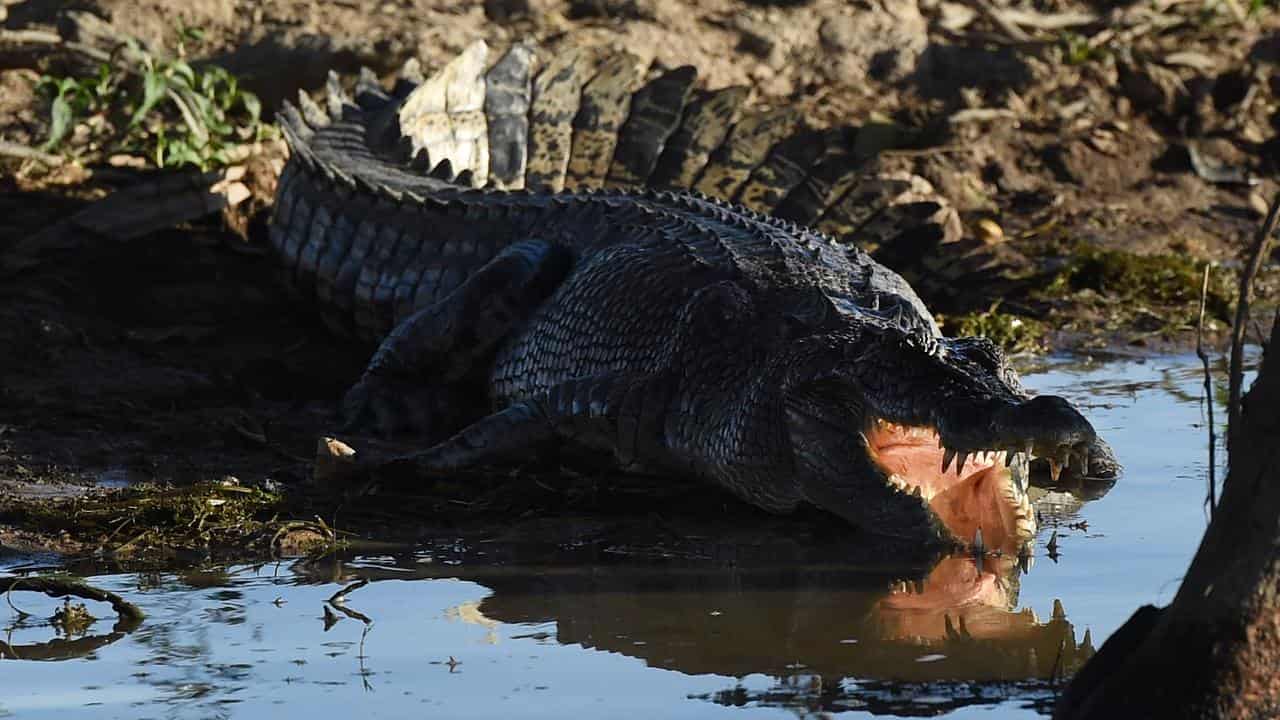
Widespread saltwater crocodile culling is a less effective way to reduce attacks than community awareness and crocodile management, a study has found.
There were 76 crocodile attacks on people in the Northern Territory between 1979 and 2022, with 30 per cent fatal.
In Queensland, the were 48 attacks between December 1985 and April 2024, with 15 fatal.

The rate of attacks in the NT stabilised after 2008, according to research by Charles Darwin University, despite crocodile density and human population continuing to rise, with a 10 per cent decrease in the frequency of incidents over the following decade.
Ecologist Cameron Baker said the drop in attacks corresponded to people changing their behaviour around waterways, along with the implementation of government education strategies and programs to remove problem crocodiles.
These actions proved awareness and management were more effective at reducing attacks than any widespread culling program could achieve, Dr Baker said on Monday.
Saltwater crocodile culling has intermittently been the subject of heated debate across the nation in recent decades as the population increased to between 100,000 and 200,00 reptiles.
The species was protected in the NT, Queensland and Western Australia between 1970 and 1974 after extensive hunting during the 1940s, 50s and 60s pushed it to the brink of extinction.
“Our models predicted that the NT crocodile population would have to be reduced by as much as 90 per cent to reduce the crocodile attack frequency by one attack per year,” Dr Baker said.
"This is because the risk of attacks on humans only decreases once large crocodiles are completely extirpated from an area."
Dr Baker said culling to such an extent would push the species back into the critically endangered category and was also not cost-effective.
Based on the current NT crocodile management budget, culling crocodiles humanely would cost $975 per reptile.
“Assuming these operational costs remained constant throughout the culling period, it would cost $87,750,000 to cull 90 per cent of the NT crocodile population humanely, achieving a 48 per cent reduction in crocodile attack frequency,” he said.
“In comparison, between 2013 and 2016, the NT government spent $250,000 on the ‘Be Crocwise’ educational campaign."
The campaign was introduced in 2009.
Animal ecologist Hamish Campbell said it was critical for policy-makers to maintain an evidence-based approach to crocodile management.
He said the funds available for crocodile management were limited.
"We need to spend these in the most effective manner to reduce crocodile attacks upon humans," he said.
Professor Campbell said the evidence showed widespread culling was not a cost-effective nor efficient method for reducing attacks.
“Alternative management methods currently used by the NT government seem to be working and effective," he said.
Saltwater crocodiles are the largest living reptile species and can grow up to six metres in length.
They are found across northern Australia in coastal waters, estuaries, lakes, inland swamps and marshes, with a range south to Gladstone in Queensland and Carnarvon in WA.
The NT, Queensland and WA work closely together to manage the species and the risk it poses to humans.
Queensland and WA have also implemented the Be Crocwise program.
The study was published in the journal People and Nature.









